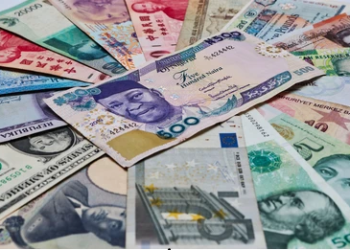Nigeria’s Money Supply (M2) rose by 18.3% year-on-year (YoY) to N110.97 trillion in January 2025, up from N93.77 trillion in the same period of 2024, according to the Central Bank of Nigeria (CBN). The increase is attributed to a significant rise in savings and investments by Nigerians, as revealed in the CBN’s latest Money and Credit Statistics report.
The growth in money supply was primarily driven by a 21% surge in Quasi Money, which includes savings accounts, treasury bills, money market instruments, and foreign currency deposits. Quasi Money climbed to N74.07 trillion in January 2025, up from N61.2 trillion in January 2024. Similarly, Demand Deposits increased by 13.6% YoY to N32.15 trillion, while Currency Outside Banks saw a substantial 44.5% rise to N4.74 trillion.
Narrow Money (M1), which includes physical currency and demand deposits, also grew by 16.7% YoY to N36.9 trillion. The increase in money supply reflects heightened savings activity among Nigerians, as well as a rise in government borrowing, which contributed to a 6% quarter-on-quarter (QoQ) increase in the country’s total public debt. According to the Debt Management Office (DMO), Nigeria’s public debt stood at N142.3 trillion in the third quarter of 2024 (Q3’24).
Government Borrowing and Private Sector Credit Trends
The CBN data revealed that Credit to the Government surged by 54% YoY to N24.51 trillion in January 2025, up from N23.51 trillion in January 2024. This rise in government borrowing is linked to efforts to address fiscal deficits and fund budgetary shortfalls. However, Credit to the Private Sector declined by 2.09% YoY to N74.9 trillion, resulting in a 0.5% drop in Net Domestic Credit to N99.4 trillion.
Analysts at Cowry Asset Management Limited attributed the increase in public debt to a widening fiscal deficit, the depreciation of the naira, and domestic debt issuance by the DMO to finance government spending. They noted that Nigeria’s fiscal position remains precarious, with economic stability at risk unless structural reforms and revenue diversification efforts yield significant results.
Implications for the Economy
The rise in money supply and savings reflects growing financial activity among Nigerians, driven by increased investment in secure instruments such as treasury bills and savings accounts. However, the decline in private sector credit raises concerns about limited access to financing for businesses, which could hinder economic growth and expansion.
The CBN’s data underscores the need for balanced fiscal and monetary policies to address Nigeria’s economic challenges. While government borrowing has helped bridge fiscal gaps, analysts emphasize the importance of implementing structural reforms to reduce reliance on debt and stimulate private sector growth.
As Nigeria navigates its economic landscape, the interplay between rising money supply, public debt, and private sector credit will remain critical factors shaping the country’s financial stability and growth prospects. Stakeholders are calling for sustained efforts to diversify revenue sources and strengthen economic resilience in the face of ongoing challenges.











